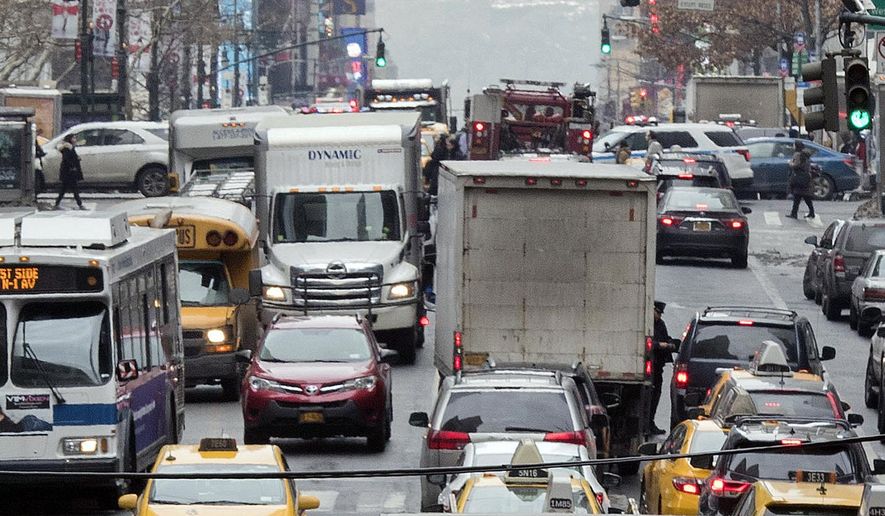OPINION:
Driving in New York City is about to get a lot more expensive.
In the spring, motorists will be billed up to $23 each time they venture south of 60th Street through a “congestion charge” expected to generate $15 billion over the next few years.
You can be sure that officials here in the District will be next in line to implement the scheme if the Big Apple is allowed to get away with it.
Under the Central Business District Tolling Program, the Metropolitan Transportation Authority collects money from drivers that the city can then use to implement more bus lanes, bicycle paths and other “environmental justice” projects — all fruitless endeavors in vogue on the left. City leaders approved this wealth transfer scheme knowing the burden of this tax will fall heavily on commuters from New Jersey.
That hasn’t escaped the notice of Democratic lawmakers in the Garden State who are suing Federal Highway Administration and New York transit officials in the hopes of blocking the tax.
“FHWA has unlawfully fast-tracked the agency’s attempt to line its own coffers at the expense of New Jersey families,” New Jersey Gov. Phil Murphy said in a statement.
Mr. Murphy is furious that the Biden administration sidestepped otherwise sacrosanct environmental impact rules to greenlight the predatory levy, explaining that the tax won’t reduce congestion at all. Instead, it will merely move congestion to other areas, disrupting traffic as drivers seek to avoid paying the toll.
This was the case after London implemented a congestion tax two decades ago. In the first few years, city figures confirmed longer delays for drivers despite the best efforts of local officials to insist it was for their benefit.
In the beginning, London’s charge applied to a relatively modest downtown area, but last week it did what all government programs do: It dramatically expanded in size and scope.
Now, a second tax imposed in a so-called Ultra Low Emission Zone renders the entire city subject to some form of charge that can total as much as $35 daily. The exact amount varies based on whether the mayor favors or disfavors the kind of car being driven.
As in London, New York’s answer to those who complain about the tax is that drivers can just use public transit instead. Inconveniencing drivers is a key feature of the plan; the busybodies in Manhattan, London and Washington hate the freedom provided by the automobile. In their minds, government should be directing your travel, but the public isn’t so sure.
Subway ridership cratered during the COVID-19 pandemic and has yet to recover fully. Many are afraid to take New York City trains while left-wing, soft-on-crime prosecutors release violent thugs to roam the streets. A recent Siena College poll found that 61% of New Yorkers thought they might become the next victim.
Last year, 2,334 major felonies were committed on the subway system, up 155% from 2019. “The other shift that riders feel is that what crime there is in the subway is becoming more violent,” a report from the New York State Comptroller explained.
New Jersey’s lawsuit may be a long shot, but perhaps the litigation will give big-city mayors enough pause to realize that adding a price of entry to downtown areas already struggling to recover from COVID-19 lockdowns is a truly bad idea.




Please read our comment policy before commenting.